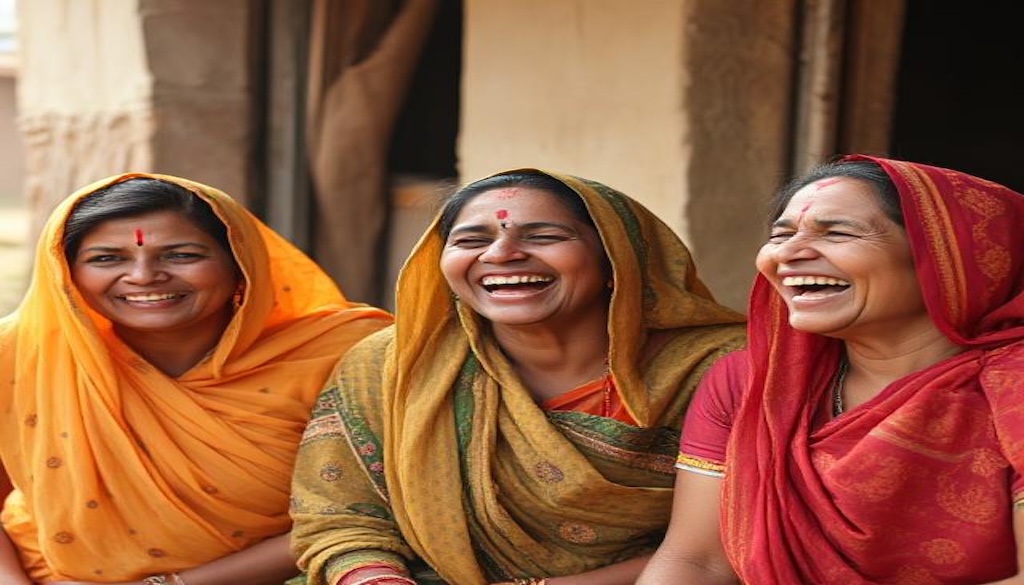
This is an AI-generated image for representation purposes.
Patna: In a state often in the headlines for its socio-economic challenges, a quieter revolution is unfolding — one of laughter, resilience, and unexpected gender contrasts. According to a recent study by the National Women and Child Development Ministry, women in Bihar are significantly more cheerful than their male counterparts, with 65% of women reportedly spending two to three hours a day laughing and joking, compared to just 35% of men who manage around half an hour.
The findings come from a large-scale survey conducted in March, involving 5,07,666 participants from across the state, including over 30.5 lakh women aged between 15 and 50. Released in April, the report shines a spotlight on emotional wellbeing — a topic often overlooked in public health discourse — and offers a compelling narrative about how women navigate stress through everyday joy.
The cheerfulness gap is most visible among women aged 30 to 45, many of whom are employed or homemakers. Over 20 lakh women cited their children as the primary source of happiness. Whether at home or in the office, conversations with children often act as a buffer against daily stressors.
“In the middle of office work, talking to children lifts their mood. At home, getting children ready for school or helping them with homework becomes a source of joy rather than a chore,” the report notes.
An additional 10 lakh women reported finding moments of laughter with office colleagues, showing how humour seeps into both domestic and professional spaces.
The impact of this emotional resilience goes beyond mood. The study links regular laughter with reduced illness. Three lakh women who previously suffered from conditions such as migraine, hypertension, or diabetes reported significant improvements after incorporating daily laughter into their routines, including through practices like laughter yoga.
For these women, laughter became not just a social act but a therapeutic tool — a way to reclaim health in an overstretched system where mental wellness is rarely prioritised.
By contrast, men in the study were found to spend much less time in cheerful interactions, and reported higher levels of unaddressed stress. Researchers say this could point to deeper cultural expectations around masculinity and emotional expression.
In a society where open displays of vulnerability are often discouraged for men, women are quietly building communities of care — and healing — through humour and connection.






